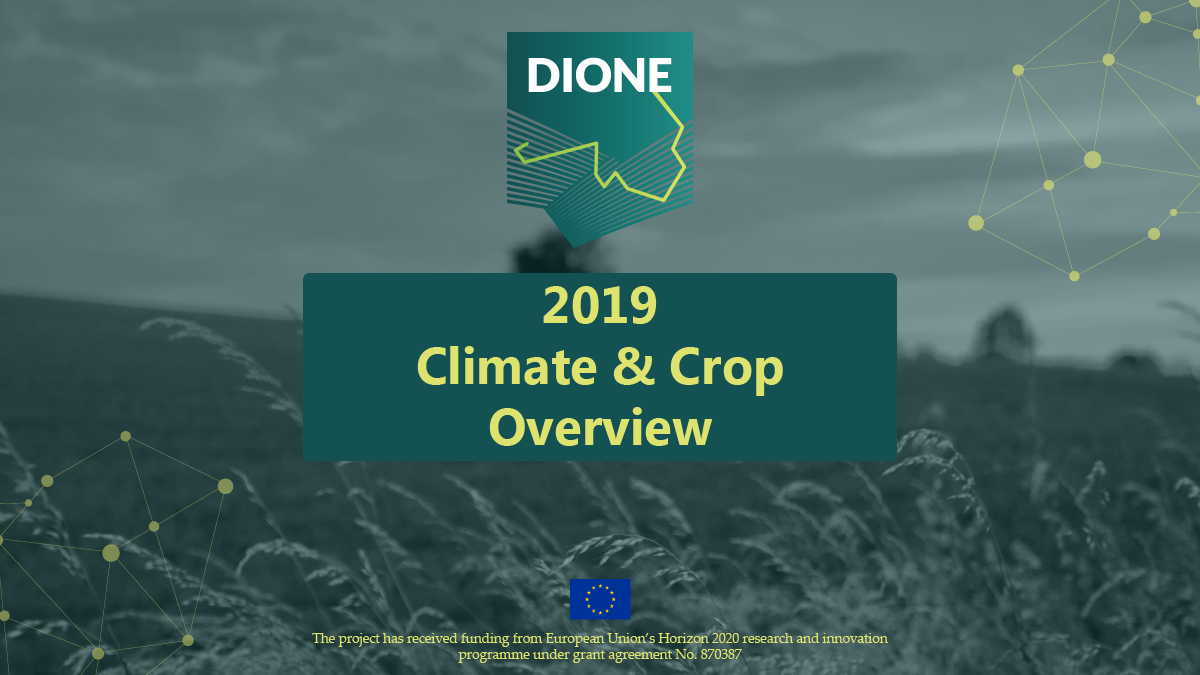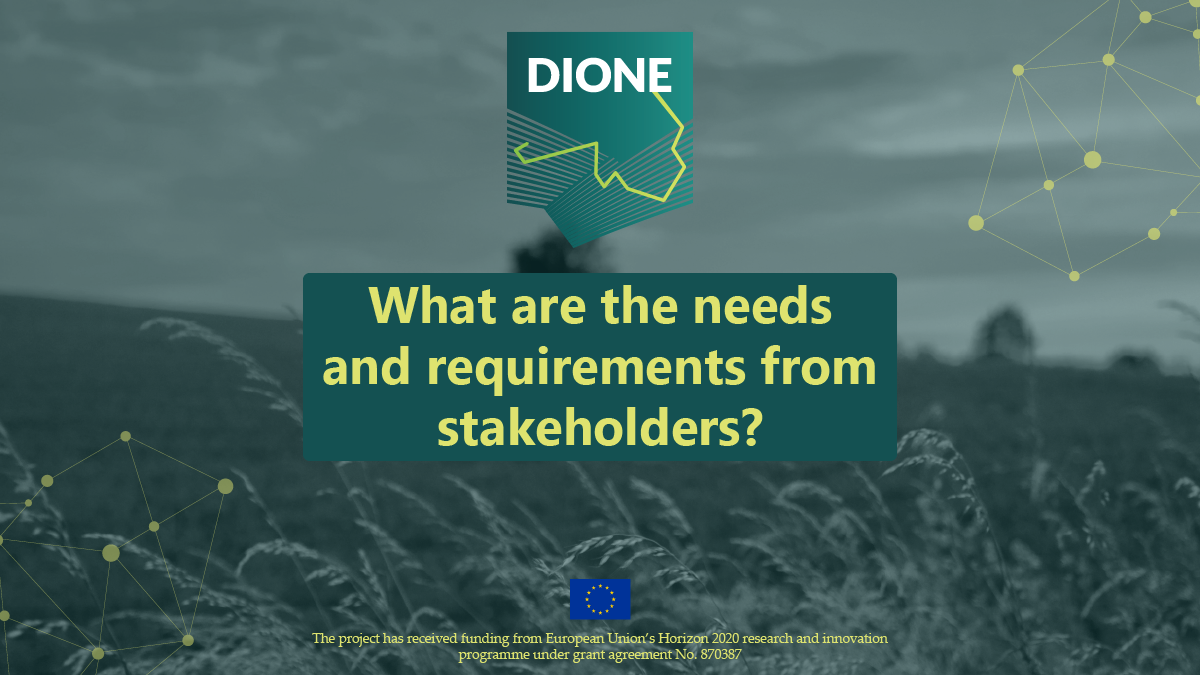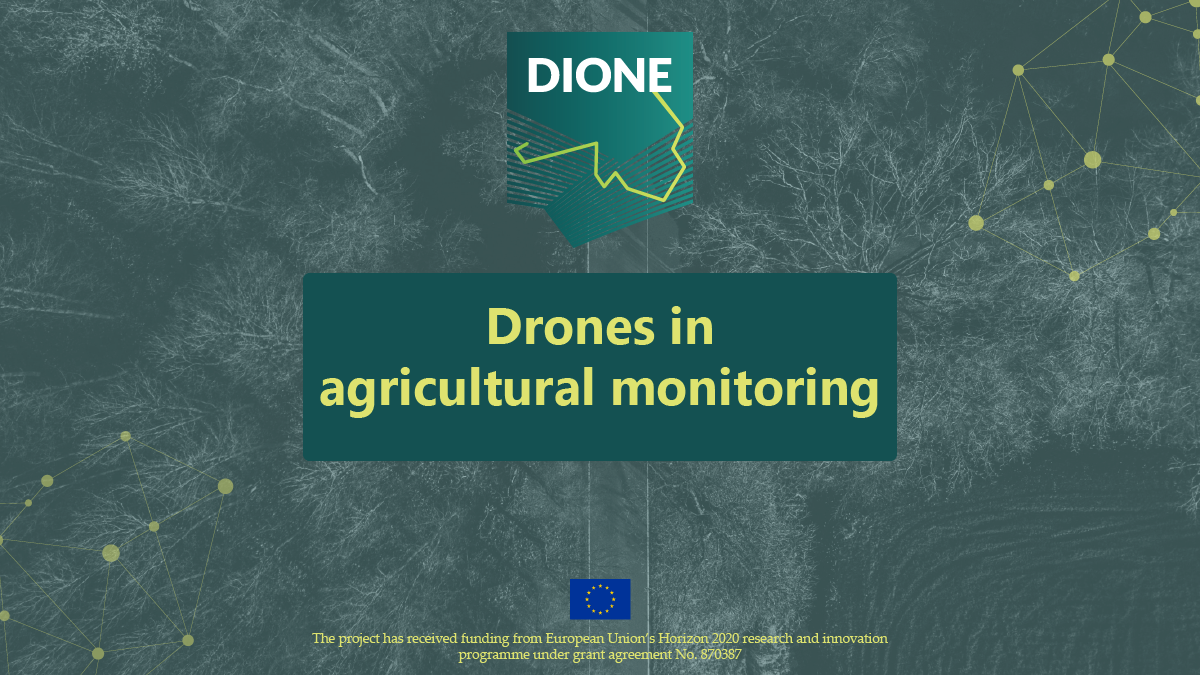
2019 Climate & Crop Overview
April 3, 2020
What are the needs and requirements from stakeholders in the DIONE Project?
April 27, 2020Drone Technology is a groundbreaking technology that continues to have far-reaching implications in today's culture, changing our lives and the way we do business. The agricultural sector seems to have open arms to drone technology, utilizing these sophisticated devices to change industrial agriculture.
Agricultural drones help to achieve and improve what’s known as precision agriculture. Precision technology has powered the farming transition in recent years. Monitoring crops from the sky utilizing agricultural drones looks likely to push the next phase, as agronomists, agricultural engineers and farmers switch to UAVs (unmanned aerial vehicles) to obtain more effective crop observations and to schedule and control their activities more precisely.
According to the Digital Transformation Monitor, one of the keys to meeting growing food demand and improving current water usage levels lies in the introduction of new technologies to agriculture, including the Internet of Things (‘IoT), Big Data and Artificial Intelligence. These technologies are beginning to power or enhance new and existing methods and tools, and have already been deployed on farms – connected tractors are a wellknown example of new technology already in use. Drones however are a more recent and less mature tool in terms of the new technologies driving the development of precision agriculture. Currently, most drones for agricultural use are medium-sized (usually for analysis applications) while larger drones are used when there is a need to carry a load (i.e. planting or spraying applications). Like most industries currently using drones, multi-rotor configurations seem to be the favourite in agriculture, likely due to their lower cost and high level of simplicity.
DRONES AND AGRICULTURE: A PERFECT MATCH
Drones are changing the way technology and production are performed. Through incorporating drone technology, farms and agricultural businesses will increase crop yields, save money, and make land management choices that will boost long-term performance. Farmers today have a number of diverse variables that affect the performance of their crops. From precipitation to climate change, wind, land quality, weeds and insects, changing growing seasons, and more.
Drones can be used to gather data on crop yields, livestock health, land quality, fertilizer levels, temperature and rainfall trends, and more. Such details will also be used to provide a more precise map of the current problems, as well as to build approaches focused on highly credible details. Agriculture is no newcomer to accepting growing technology changes in order to streamline business. The usage of drones in agriculture is the next technology revolution that will enable agricultural businesses fulfill the rising and increasing demands of the future.
Drones can be used to gather data on crop yields, livestock health, land quality, fertilizer levels, temperature and rainfall trends, and more. Such details will also be used to provide a more precise map of the current problems, as well as to build approaches focused on highly credible details. Agriculture is no newcomer to accepting growing technology changes in order to streamline business. The usage of drones in agriculture is the next technology revolution that will enable agricultural businesses fulfill the rising and increasing demands of the future.






